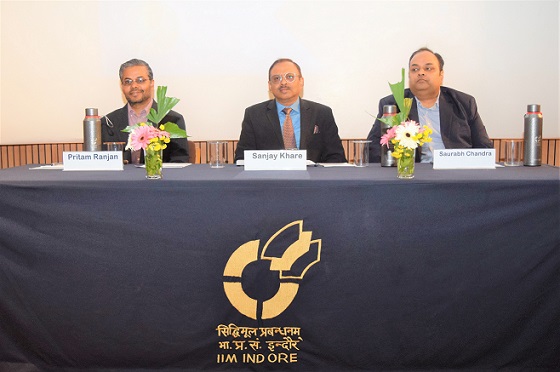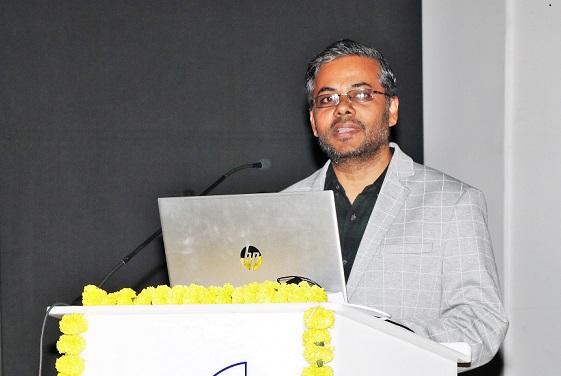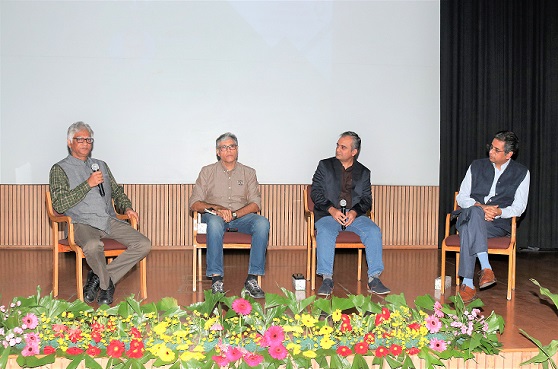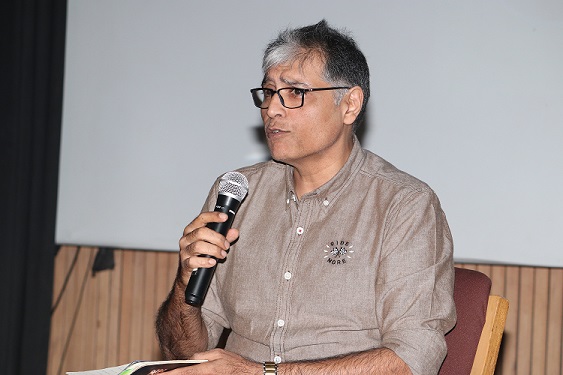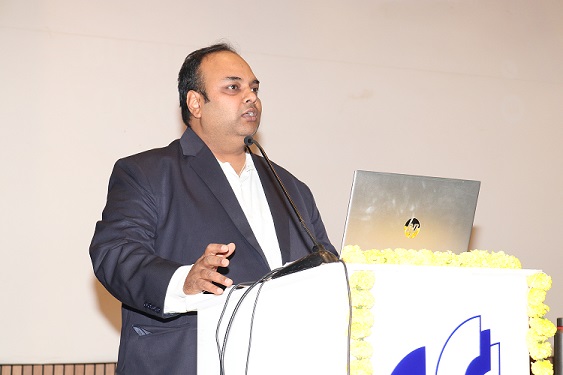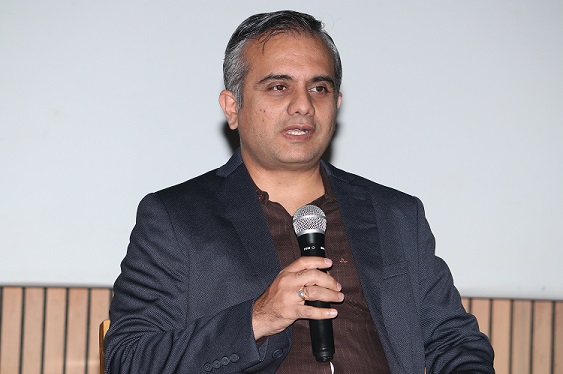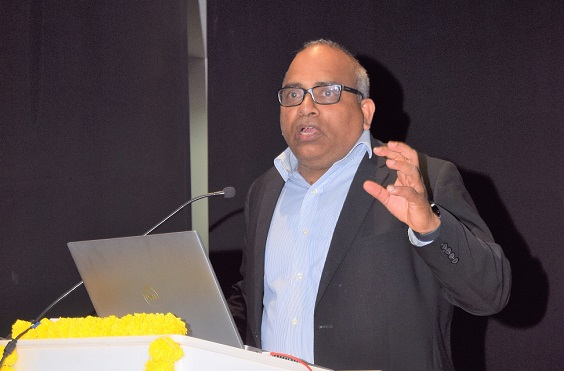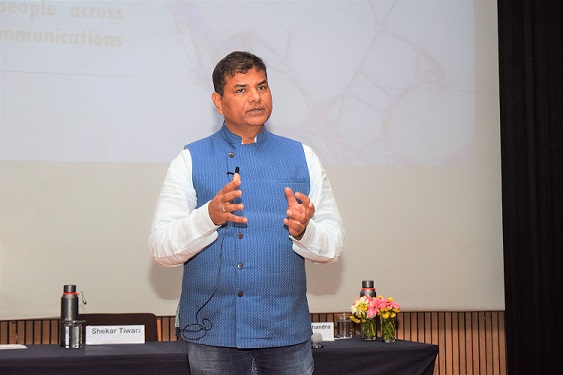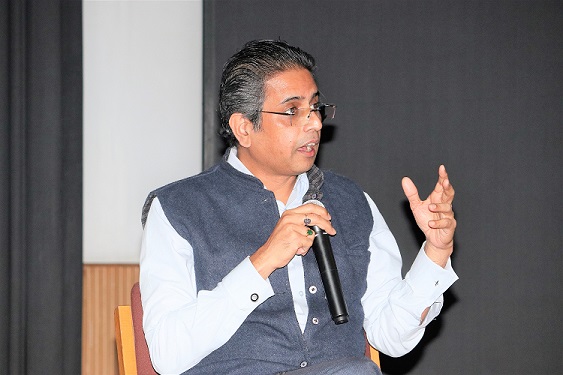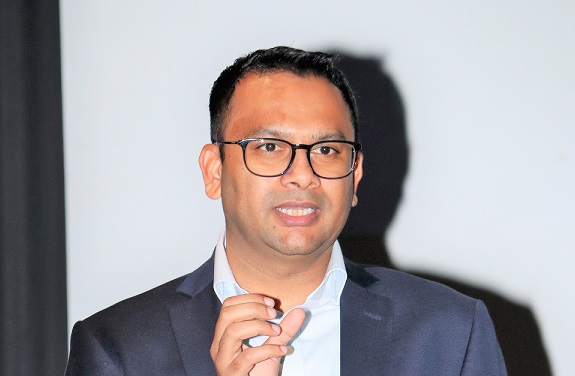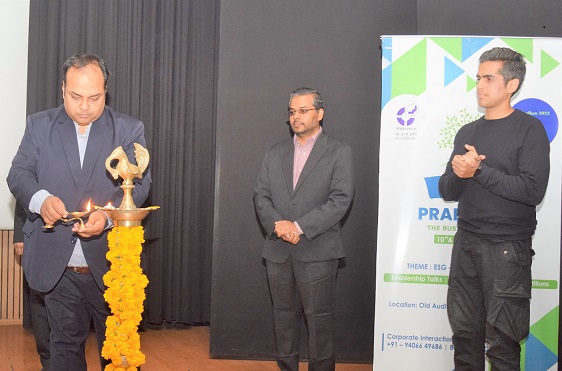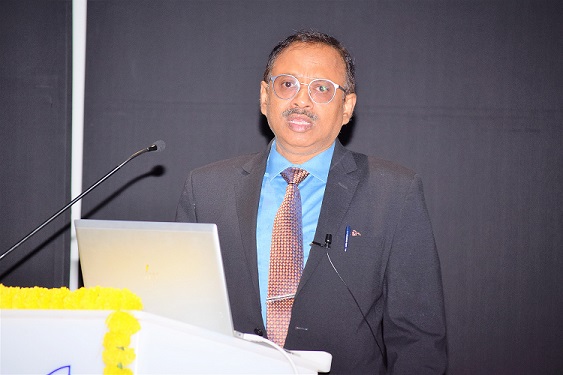Mr. Sarvana Sastha Kumar, Senior Director at Tiger Analytics, spoke about the importance of analytics in today’s world. He iterated how, in the 90s, with limited data, life was quite simple. However, computational power was expensive. But now data is available everywhere, and today’s computers have enormous power. But now, an essential part is to ask the right question. The field of analytics is growing at an unprecedented level. Specifically, forecasting has improved vastly in the supply chain field. He said there is a shortage of competent data analytics professionals today. He also mentioned how companies today are focusing on building smart operations. ‘With the customer now at the center of everything, it is becoming imperative for companies to get data and deliver what the customer wants’, he said.
Mr. Arpan Somani, Global COO and India Head of Shared Services, UBS, shared his views on the role of ESG in Finance. ‘Knowing ESG is essential in going forward, for, in this era of the internet revolution, we also need to take care of sustainability. And sustainable finance under the umbrella of ESG has an essential role to play’, he said. He opined that businesses and business leaders need to embrace ESG to remain relevant in the changing times. He also lauded the role of the government in setting ambitious goals concerning climate change and working hard towards achieving them. He batted for equity and inclusiveness in the workplace and encouraged future leaders to work responsibly as the decisions they make today will impact the world in the decades to come.
The highlight of the second day of Prabodhan was the HR panel discussion on the topic –’Future of Workplaces’. Mr. Harshavardhan Kundalkar, Head of HR, Daimler Truck Innovation Center India (DTICI); Mr. Balaji Kumar, CHRO, Sonata Software; and Mr. Shashi Bhatia, GM – Learning & Development, Royal Enfield, were the panelists for the session. Prof. S K Ghosh, Faculty, IIM Indore, moderated the session.
Mr. Shashi Bhatia stressed the importance of upskilling in digital and cognitive abilities. He also discussed effective work-life balance and developing a just workplace culture. ‘We need a lot of help understanding how managers handle hybrid work setup. If you have a part of your organization that works in the physical setup while another part works in the virtual setup, you need skills and emotional intelligence to handle that. Therefore, a lot of focus should be on the managerial capability’, he said.
Mr. Harshvardhan Kundalkar spoke about how humans strive for human contact and a social environment— that’s what makes us human and essential at the workplace. ‘I am concerned about the type of environment in which we will be living, which is extremely transactional, an environment we do not want to be in. Human beings strive for human contact in a social setting. I don’t want to sound philosophical, but that raises many questions about what kind of culture you want to create’, he said.
Mr. Balaji Kumar discussed how the workforce is becoming dispersed due to the remote working culture. A performance management system that meets the organization’s objectives while also managing the dispersed workforce is required. ‘It’s just that we need to start over with some design thinking principles to redesign some of those elements’, he said. The panel discussion concluded with a Q&A session, wherein the panelists delightfully answered the queries of the participants attending the event.
The conclave also witnessed a case study competition, wherein the participants presented their case solutions. The winners of the case study were Team Nemesis from IIM Shillong (First Prize, Rs. 50,000), Team UBS CG24, UBS Chandigarh (Second Prize, Rs. 30,000), and Team PAOer from IIM Shillong (Third Prize, Rs. 20,000).
The two-day event concluded on a high note, with a lot of appreciation from all the guests, speakers, and participants for the EPGP Batch 2022-23 for successfully organizing the event.



